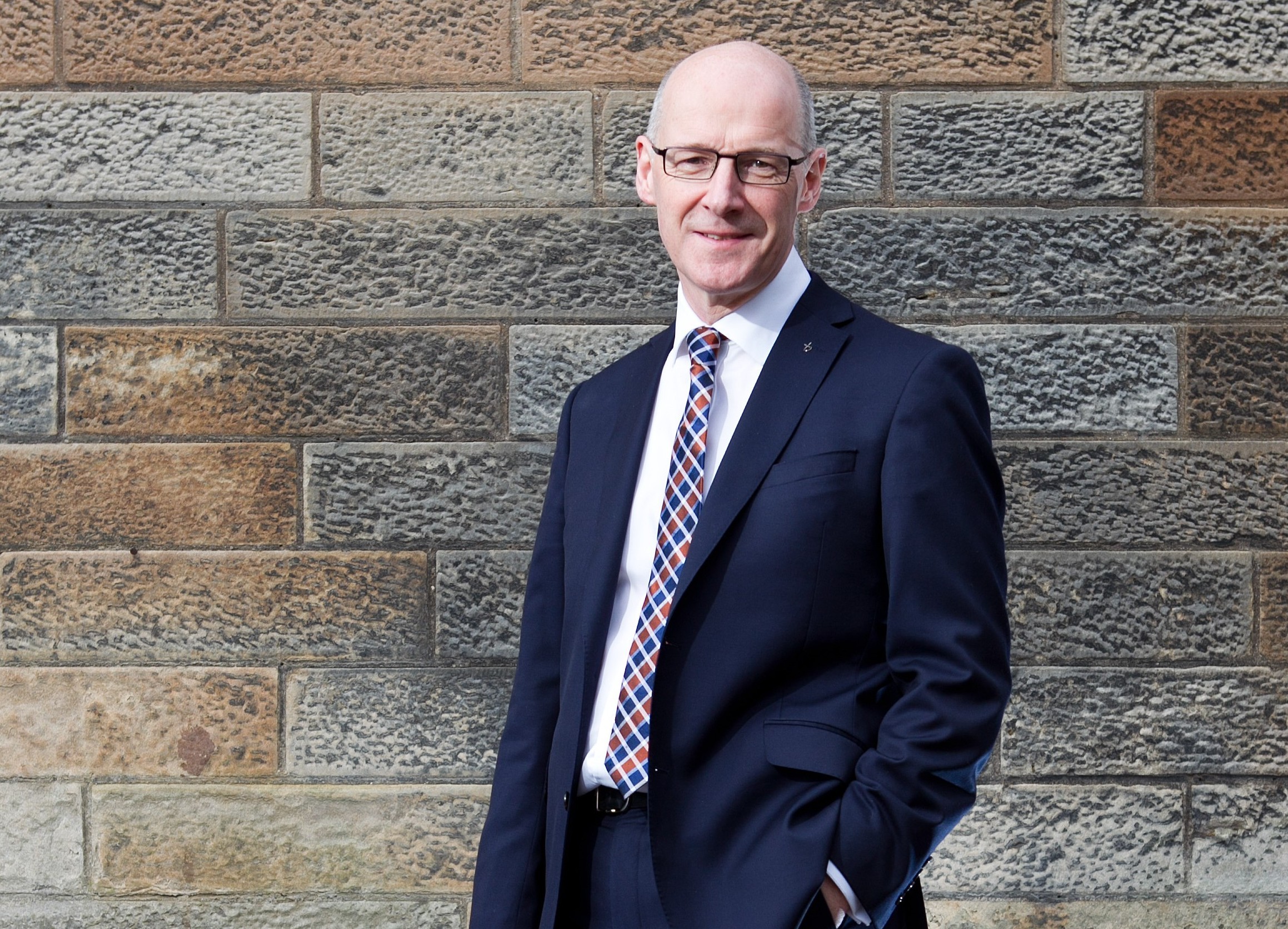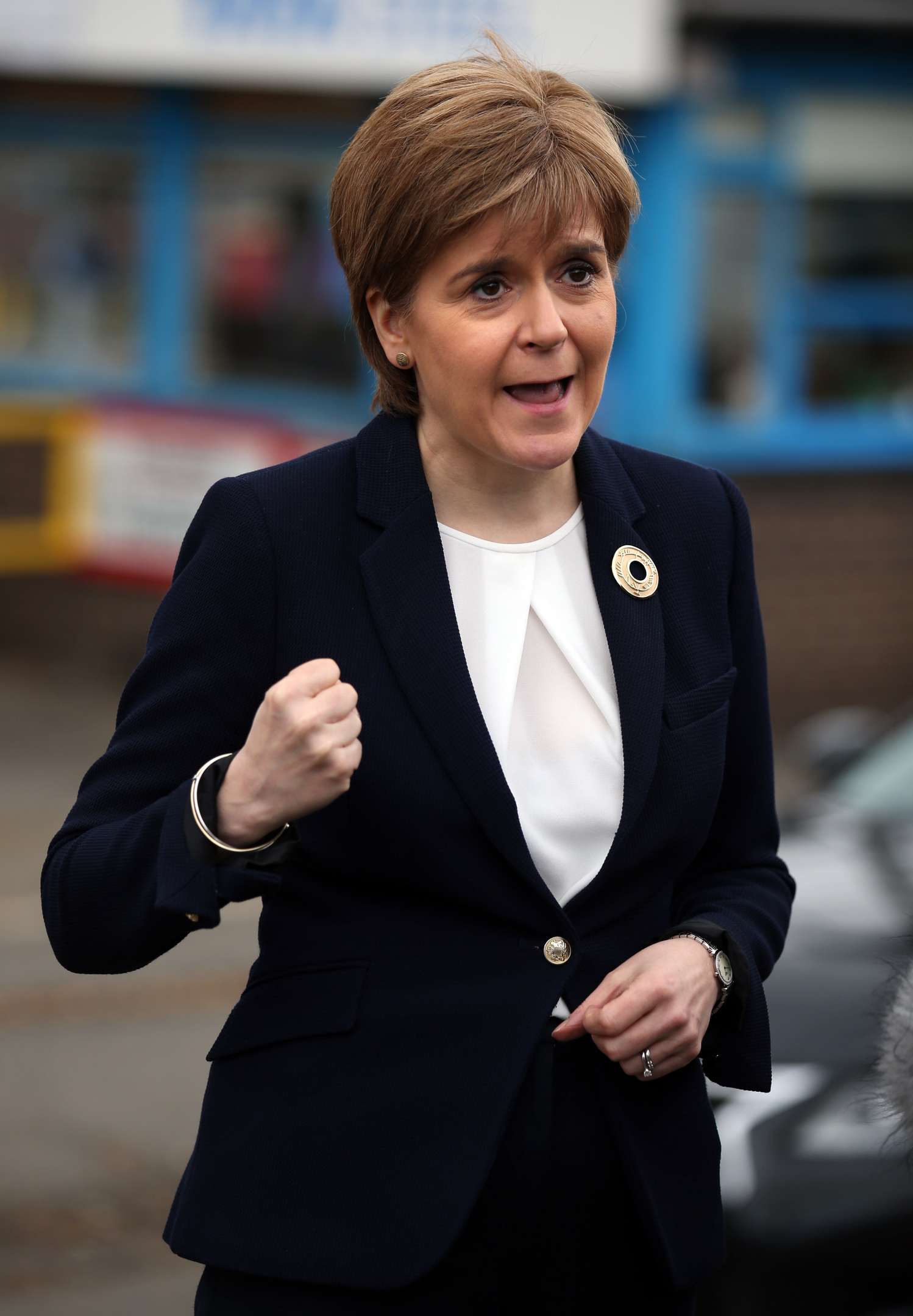
But the finance secretary is, by his own admission, offering little radical in the way of new ideas for Scotland’s economy.
Swinney has been in charge of Scotland’s purse strings for nine years now.
The job will take on a whole new dimension next year when Holyrood is handed the power to set Scottish taxes.
He said: “This is a different election because it’s set against the backdrop of the parliament becoming more powerful, being able to exercise broader responsibilities and crucially to go into really very substantial new areas of activity in relation to tax.”
The parties appear to be struggling to get to grips with the new reality. While Labour last week altered the detail of their policy on raising rates by a penny – a fine tune or a U-turn depending on point of view – the SNP have got into a muddle over the 50p band.
First Minister Nicola Sturgeon called raising the top rate of tax “daft” yet also said she’s not opposed to a 50p rate in principle.
Swinney explained: “We do not believe it would be correct to apply a 50p tax rate given the research we’ve set out that demonstrates the very real possibility that if you apply the 50p tax rate it may end up costing us as opposed to generating additional tax revenues. .”
The SNP claim that a 50p rate would cost Scotland as much as £30 million because those subject to it could move over the Border to avoid it.
However, higher earners will pay more as Swinney has chosen not to follow George Osborne in raising the bar at which the 40p tax rate kicks in.
He added: “I accept that higher-rate taxpayers will be required to pay more in taxation. That’s us making a choice. We think people on higher incomes can afford to contribute more to the public finances.”
At the other end of the scale, Swinney is committed to freezing the basic rate of income tax. He said: “That’s the right reassurance to give to people who are already finding it challenging to make ends meet. We’ll give them that assurance for the remainder of the parliamentary term.”
As well as being finance minister, Swinney is deputy First Minister and Nicola Sturgeon has made him her election supremo for this campaign, precisely because the economy is set to dominate.
Swinney was one of the SNP delegates at the Smith Commission that generated the Scotland Act and he led negotiations with Westminster on the fiscal framework, the deal struck on how Holyrood’s new powers will be paid for.
He said: “The fiscal framework discussions were an abject lesson in what it means to have a government that’s prepared to stand up for Scotland.
“We stood up for Scotland and we defeated the Tory Treasury in their attempts to reduce the budget for Scotland and that was the right thing.” to do.”
Looking ahead, he says productivity will be his focus and he highlights SNP plans to hit 100% internet connectivity.
He said: “If we deliver improvements in productivity we will improve economic opportunity for all the citizens of Scotland. The country will be a better-paid country. It will have a better quality of employment, it will have a more satisfying working environment and atmosphere.
“All of these factors will be a result of improving productivity in Scotland.”
He admits that the broad SNP message on the economy is steady as she goes, however.
“It’s about building on solid foundations,” he went on. “We’ve established as a government very clear directions of improvement.
“This election is about whether people are prepared to give us a further opportunity to continue that direction and continue to improve the lives of people in Scotland.”
Economic stability in last five years
The key political event of the last five years of SNP administration was the independence referendum.
If that had resulted in a Yes vote it would have been an economic event too.
For the Scottish Government’s own figures released last month showed that Scotland would have been left facing some very hard choices to balance the books.
The SNP’s reputation for prudence may well have been shot.
Instead, the Scottish economy has grown alongside that of the UK in recent years with a rise in productivity and significant increases in employment.
John Swinney is justly proud of shepherding the economy safely since 2007 through the banking crisis that gripped the globe.
The party rightly trumpet low youth unemployment – partly thanks to a drive to increase apprenticeships – and high female employment.
Similarly Swinney talks up passing tough anti-avoidance measures on tax while handing over millions of pounds in grants to Amazon, notorious for how little tax it stumps up in the UK.
The SNP were taken to task earlier this year for supporting Amazon while the internet giant doesn’t pay the living wage. Yet the Scottish Government insists anyone bidding for work from the company must pay the living wage.
The SNP would argue the Amazon grants create jobs.
They’ve applied the same pragmatic approach to more traditional industries.
The Scottish Government piled in when Ferguson’s shipyard went into administration, just as it did in the current steel crisis. In both instances it has successfully brought in buyers for the businesses and saved jobs.
The SNP like to boast they’ve always balanced the books. But the law states they must. That will change with new tax and borrowing powers coming next year meaning whoever is in charge of the Scottish purse strings will have a lot more work to do.
READ MORE
Growth at Edinburgh Airport brings a £1bn boost for Scottish economy
Politics Podcast: Independence and IDS resignation with guest SNP MP Eilidh Whiteford
SNP set to drop opposition to scrapping Sunday shopping laws in England

Enjoy the convenience of having The Sunday Post delivered as a digital ePaper straight to your smartphone, tablet or computer.
Subscribe for only £5.49 a month and enjoy all the benefits of the printed paper as a digital replica.
Subscribe